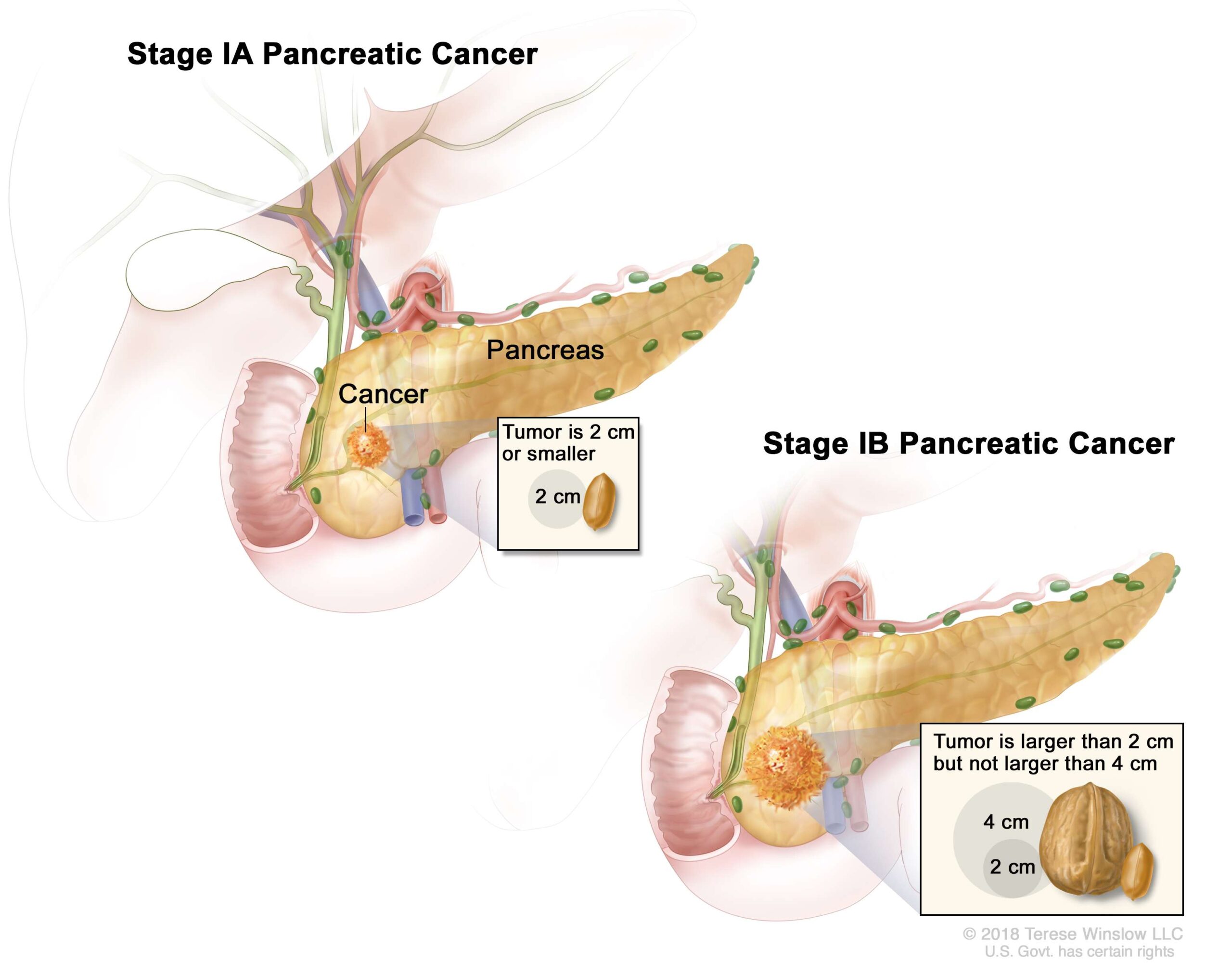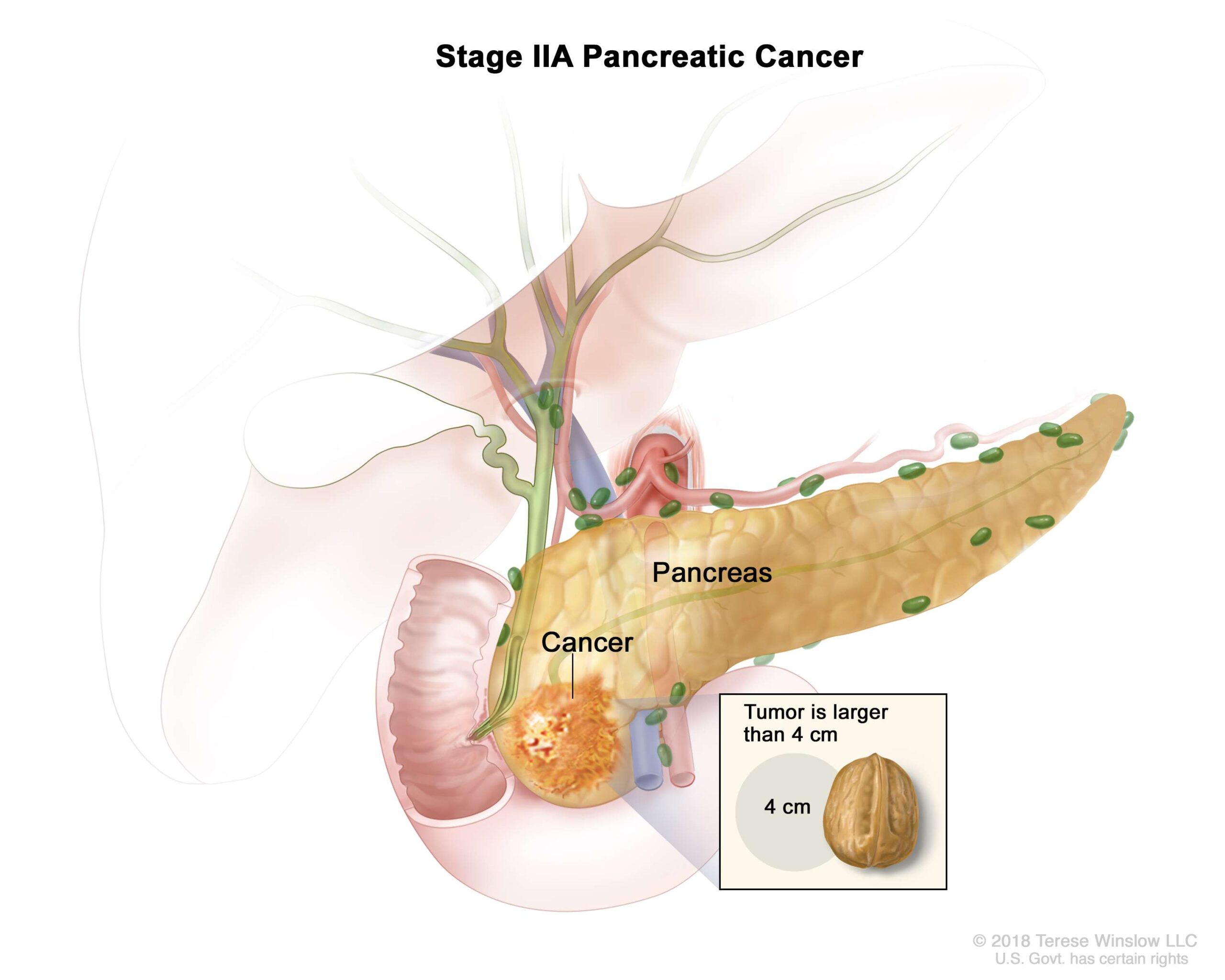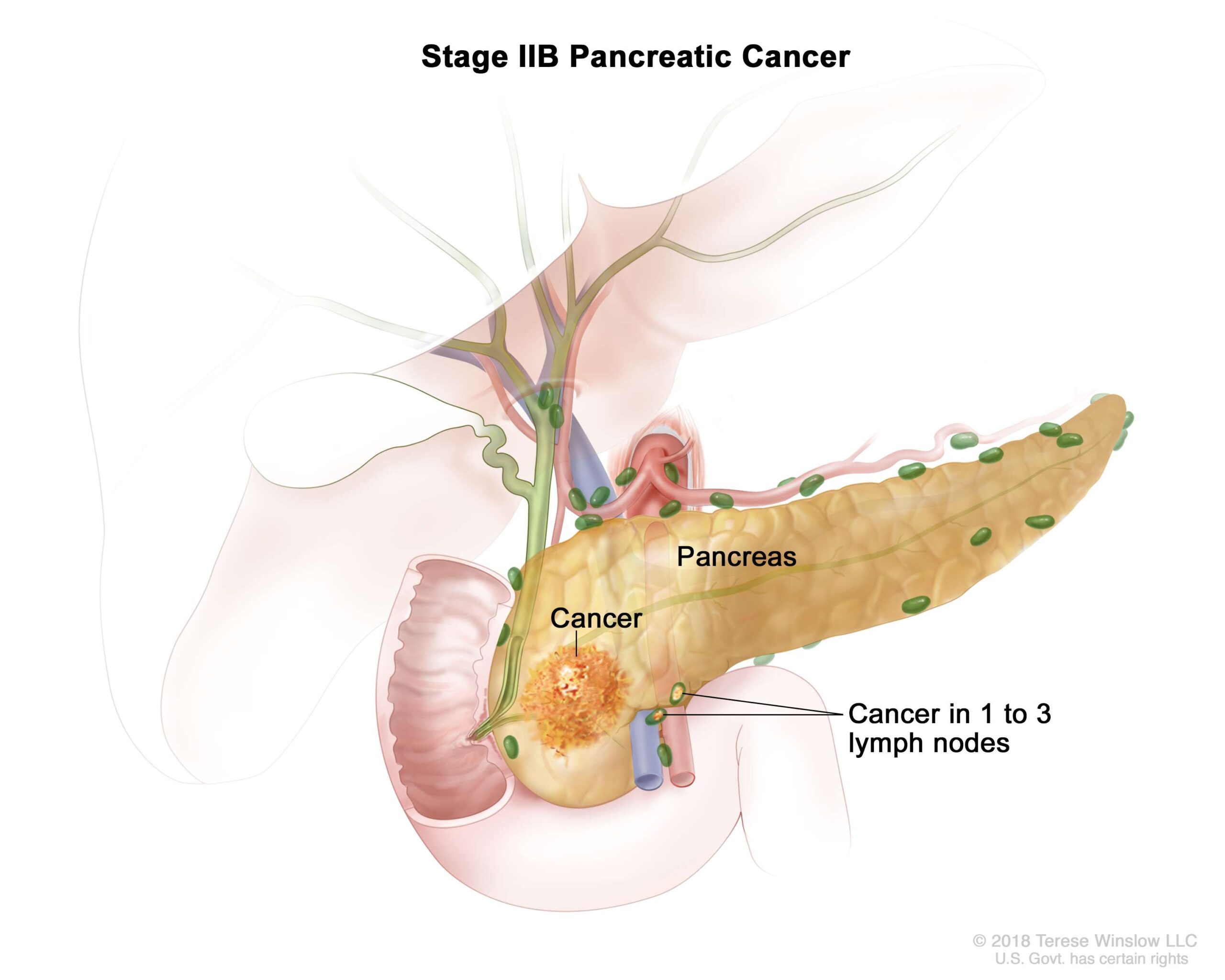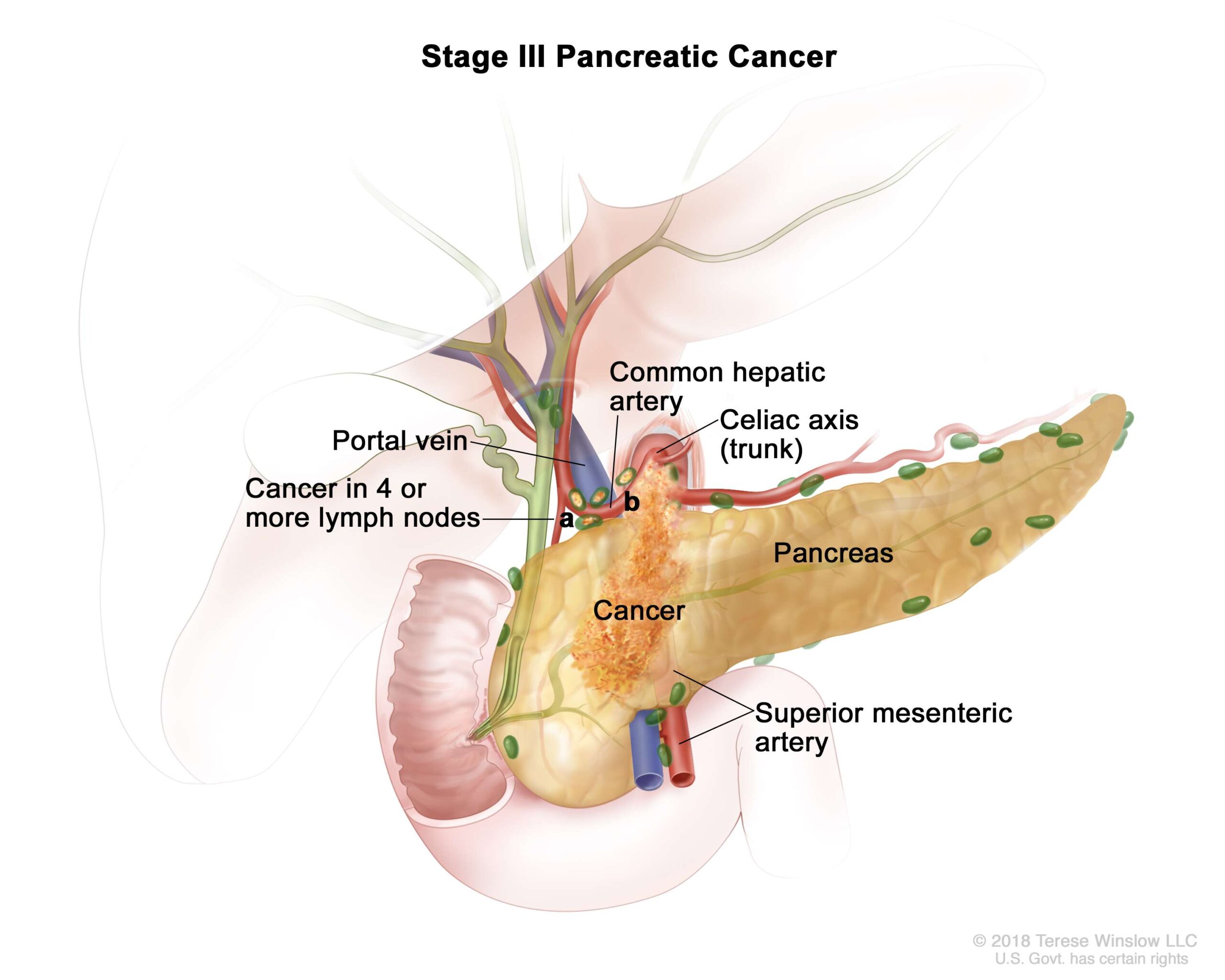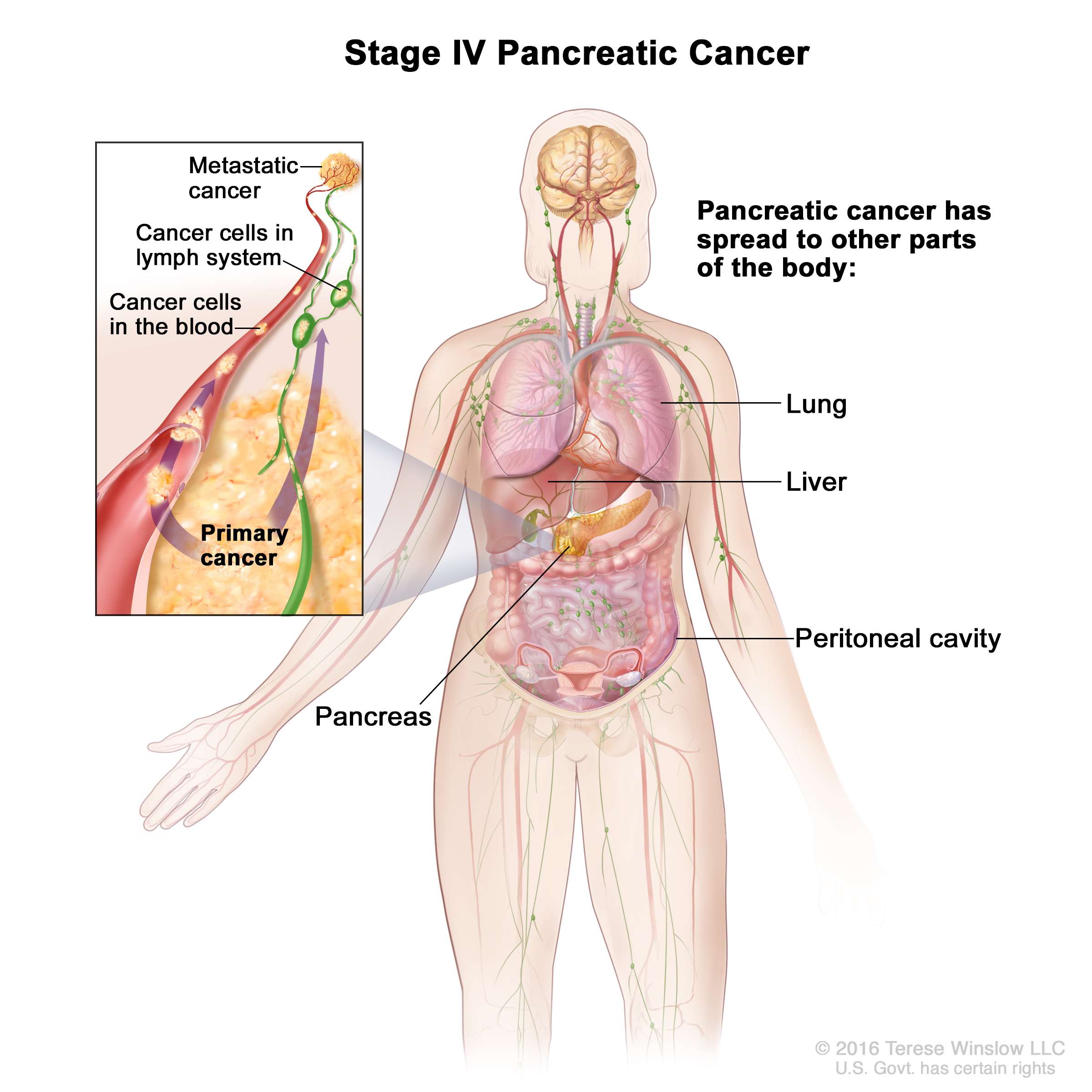On This Page
- What Is Cancer Staging?
- How Do Doctors Stage Cancer?
- What Are the Pancreatic Cancer Stages?
- What Are the Categories for Surgically Removing Tumors?
What Is Cancer Staging?
Staging is the process doctors use to describe the size of the cancer and if it has spread. Knowing the correct stage helps the doctor figure out the prognosis and best treatment plan. After a pancreatic cancer diagnosis, the doctor may need more imaging tests and surgery to correctly decide the stage.
There are two ways to describe the stages of pancreatic cancer:
- By stage number, which describes the cancer’s size and location
- By surgical resection category, which is defined as whether the tumor can be surgically removed
Why Is Staging Important?
The stage of the disease helps your doctors figure out your treatment choices.
The Pancreatic Cancer Action Network strongly recommends that you discuss your treatment goals with your healthcare team and know all of your options at every stage of your disease.
How Do Doctors Stage Cancer?
Staging is based on:
- The primary tumor’s size and location
- Whether the cancer has spread to nearby lymph nodes and blood vessels
- Whether the cancer has spread to other, distant parts of the body
Doctors use several possible tests to figure out the stage:
- Endoscopic ultrasound (EUS), the best-known method for seeing small masses on the pancreas
- CT scan, which helps doctors see if the cancer has spread to nearby organs
- Other tests, such as MRI, PET and ERCP, may also be used but are less common
Even the latest imaging tests may not give the doctor perfect information. Sometimes surgery gives doctors a better idea of the correct stage.
Learn more about tools used for diagnosis and staging.
What Are the Pancreatic Cancer Stages?
Stage I
The tumor is only in the pancreas.
Stage IA tumors are two centimeters (cm) or less, and stage IB tumors are greater than 2 cm but less than 4 cm.
Stage I tumors are usually resectable, or able to be removed by surgery.
Stage II
This stage is considered locally advanced, which means it has spread outside the pancreas, to nearby blood vessels, to nearby lymph nodes or a mix of these, but has not spread to another organ.
In stage IIA, the tumor extends outside the pancreas but has not spread to major nearby arteries or lymph nodes. Tumor measures greater than 4cm. In stage IIB, the tumor may extend outside the pancreas and has spread to nearby lymph nodes but not major nearby arteries.
Stage II tumors are usually either able to be removed by surgery (resectable) or borderline resectable. Borderline resectable tumors may be able to be removed by surgery, especially if treatments are used to shrink the cancer.
Stage III
The tumor has spread to major nearby arteries and may have spread to nearby lymph nodes.
This stage is considered locally advanced, which means it has spread outside the pancreas, to nearby blood vessels, to nearby lymph nodes or a mix of these, but has not spread to another organ. Stage III tumors are usually unresectable, meaning they cannot be removed by surgery.
Stage IV
Stage IV means the cancer has metastasized, or spread, to another part of the body.
It often spreads to the liver, abdominal wall, lungs, distant lymph nodes or a combination of these. The tumors may be any size. Cancer at this stage is also called metastatic. The cancer cannot be removed by surgery (unresectable).
Recurrence
Cancer may recur, or come back after treatment. It may come back to the pancreas or to another place in the body, such as the liver. Recurrent cancer is often treated similarly to metastatic pancreatic cancer.
What Are the Categories for Surgically Removing Tumors?
Resectable
Tumors in this category can be surgically removed. The tumor is only in the pancreas, or extends just outside it, but does not involve any major nearby arteries or veins.
Borderline Resectable
Doctors use this category if they are unsure at diagnosis whether the tumor can be surgically removed. The tumor may have spread to major nearby arteries or veins but has not spread to distant organs.
Although 20 percent of pancreatic cancer patients may be eligible for surgery, data shows that up to half of those patients are told they are ineligible. The Pancreatic Cancer Action Network strongly recommends you see a surgeon who performs a high volume of pancreatic surgeries (more than 15 per year) to determine eligibility.
Unresectable
This category describes tumors that cannot be surgically removed. The tumor has either spread to distant organs or cannot be completely removed with surgery.
We’re Here to Help
Contact PanCAN Patient Services for free, in-depth pancreatic cancer information, including diagnosis and treatment information as well as a list of specialists in your area.
Information reviewed by PanCAN’s Scientific and Medical Advisory Board, who are experts in the field from such institutions as University of Pennsylvania, Memorial Sloan-Kettering Cancer Center, Virginia Mason Medical Center and more.
Information provided by the Pancreatic Cancer Action Network, Inc. (“PanCAN”) is not a substitute for medical advice, diagnosis, treatment or other health care services. PanCAN may provide information to you about physicians, products, services, clinical trials or treatments related to pancreatic cancer, but PanCAN does not recommend nor endorse any particular health care resource. In addition, please note any personal information you provide to PanCAN’s staff during telephone and/or email communications may be stored and used to help PanCAN achieve its mission of assisting patients with, and finding cures and treatments for, pancreatic cancer. Stored constituent information may be used to inform PanCAN programs and activities. Information also may be provided in aggregate or limited formats to third parties to guide future pancreatic cancer research and education efforts. PanCAN will not provide personal directly identifying information (such as your name or contact information) to such third parties without your prior written consent unless required or permitted by law to do so. For more information on how we may use your information, you can find our privacy policy on our website at https://www.pancan.org/privacy/.

